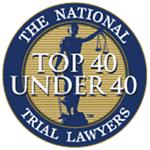Firearms charges can carry strict consequences, including potential prison time. Courts do not take them lightly, and neither should you. If you are facing weapons charges in Pennsylvania, the team at McKenzie Law Firm, P.C., may be able to help you understand what to expect, compile evidence to aid in your defense, and protect your freedoms as much as possible.
A Pennsylvania firearms charges lawyer from our firm knows the laws for the Commonwealth and can work with you to find the best defense for your situation. Contact the office today to get started on your case at (610) 991-7219.
Pennsylvania gun laws are not as straightforward as you might think. Even if you own a gun legally, you could find yourself facing a weapons charge due to how you transported or carried it. Likewise, non-residents may not realize how reciprocity works in Pennsylvania.
Knowing the law can help you better understand the charges you are facing. Some common weapons charges include:
In Pennsylvania, you do not need to have a license to carry in order to possess a firearm. However, you do need a license to carry a concealed weapon or transport a firearm in your vehicle.
The latter requirement has exceptions, but they are very specific. For instance, if you are carrying a weapon in your vehicle for hunting or sport shooting, you may only do so while on your way to and from the location where you plan to use it, per Pennsylvania Statutes Title 18 §6106. That means no detours. While these may seem like minor details, violation of these rules could result in a first-degree misdemeanor or third-degree felony.
Buying or selling a firearm, especially to or from a friend, can also carry stiff punishments if done incorrectly. The Pennsylvania State Police (PSP) stress that just because you have a license to carry a firearm does not mean you can simply buy one. The Commonwealth requires background checks from licensed dealers to confirm you are not prohibited from owning a firearm.
There are also different rules for transferring a long gun versus a handgun, as well as for in-state versus out-of-state sales. If you are facing charges related to these matters, contact the legal team at McKenzie Law Firm, P.C., to learn more about your rights, potential penalties, and how you can mount a defense.
Your situation may involve factors that make your case more complicated or unique. For instance, the kind of firearm involved can make your case very different, such as a hunting rifle versus an assault rifle. You could also have other charges on top of the weapons charge that must be taken into account to defend your case.
If you are not a Pennsylvania resident, you may feel additional confusion due to unfamiliarity with the state’s laws. Your legal team can address these factors to form a more comprehensive defense.
In addition to laws regarding the use, sale, or transport of firearms in Pennsylvania, certain firearms themselves are prohibited. Considered offensive weapons, these include:
Owning or carrying these weapons could result in a first-degree misdemeanor charge, per Pennsylvania Statutes Title 18 §908. If you are facing charges for possession of a prohibited firearm, a Pennsylvania firearms charges lawyer can explain your options and stand up for you in court.
Weapons charges are sometimes issued in combination with other criminal charges, including robbery, theft, intimidation, or assault. The use of a firearm while committing another crime is a crime in and of itself. A weapons charges attorney can help defend against multiple charges while still giving specific attention to each individual charge.
Do not neglect a gun charge while facing additional criminal charges. Contact the office of McKenzie Law Firm, P.C., today at (610) 991-7219 to get started on your case with a consultation.
Reciprocity deals with how a state honors the laws and policies of another state. The Pennsylvania Attorney General specifically recognizes 29 states’ concealed carry licenses, provided the license holder is over 21, and a resident of that state. In other words, if you have a concealed carry license in one of those states, you do not need a separate one for Pennsylvania.
However, there are exceptions to these rules regarding the kind of reciprocity agreement and what licenses the state will honor. Additionally, there are still some states with which Pennsylvania has no reciprocity agreements. If you are a non-resident and are found in possession of a concealed firearm, you could face weapons charges depending on the type of firearm, the state you are from, and your licensing situation.
Weapons charges for non-residents can be especially difficult to handle. When you have a local attorney on your team who knows Pennsylvania firearm laws can aid you, you do not have to learn all of the state’s laws and penalties on your own.
If you are facing any of the charges above or any other weapons charge, a Pennsylvania firearms charges lawyer can inform you of your rights, advise you on a course of action, and gather evidence to bolster your case.
Do not make the mistake of assuming a weapons charge is a minor offense. Contact the team at McKenzie Law Firm, P.C., today. Once we take on your case, we will be available 24/7 to keep you updated. Call now to learn more at (610) 991-7219.







